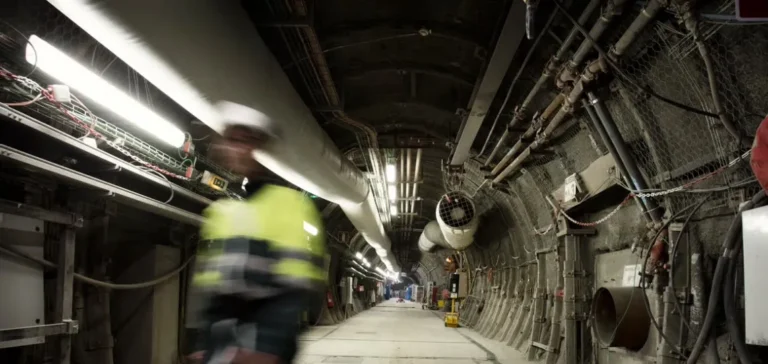The Cigéo project, designed for underground storage of French nuclear waste, has recently received a broadly positive evaluation from an independent expert committee. These specialists, mandated to examine the technical and safety aspects of the project, have nonetheless highlighted several critical issues requiring further in-depth studies. Among these key elements are the potential risk of an uncontrolled nuclear chain reaction, the resilience of containment materials, and the specific management of certain waste stored in bitumen.
Guarantees Expected on Nuclear Safety
The primary concern raised revolves around providing scientific proof that spontaneous nuclear reactions cannot occur within irradiated fuel stored in underground galleries. Demonstrating this poses a considerable technical challenge, given that the time frames involved far exceed typical study periods. Consequently, the expert committee advocates rigorous testing during the initial pilot phase of 10 to 15 years to practically verify the management of these risks.
Another sensitive issue relates to the seals intended to hermetically isolate galleries containing nuclear waste. The report emphasizes the importance of further clarification regarding their number, precise positioning, and expected long-term technical performance. The corrosion resistance of metallic components used in these underground structures is another critical aspect, necessitating additional research to assess material durability or explore alternative, more reliable solutions.
Specific Concerns on Conditioned Waste
Moreover, one of the identified technical concerns involves the potential mobility of selenium, a long-lived radioactive isotope resulting from nuclear fission, which could slowly migrate through the clay layer serving as a natural barrier. Additional research on the hydraulic and geochemical properties of this clay formation is considered essential to better understand the long-term diffusion risks. These studies could significantly impact the project’s final technical choices.
Additionally, special attention is being given to nuclear waste conditioned in bituminous matrices. With over 44,000 containers involved, the report highlights the necessity of improved understanding regarding the chemical and mechanical behavior of these wastes over time. The committee recommends conducting specific tests during the initial phase to prevent unforeseen issues that might compromise the site’s future safety.
Towards a Major Regulatory Decision
The French Nuclear Safety Authority (Autorité de Sûreté Nucléaire et de Radioprotection – ASN) will incorporate these technical recommendations into its own evaluation report, expected by late 2026 or during 2027. A public inquiry scheduled for 2026 will further examine the project proponents’ responses to the technical reservations raised by independent experts.
French nuclear industry stakeholders are closely monitoring these developments, given the potential economic and technical implications of required adjustments. Thus, the expert committee’s recommendations underscore the significant technical challenges that Cigéo must address, without directly questioning the overall viability of the project at this stage.






















